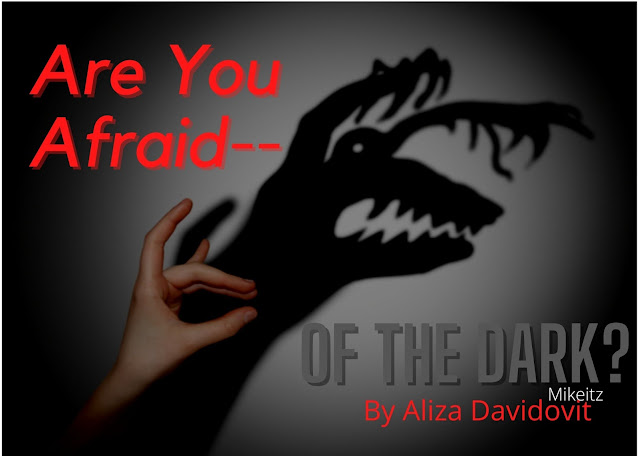I’m not sure exactly how old I was when I developed the terrible
habit of leaving everything until the last minute. I shirked the wise words,
“Don’t leave for tomorrow what you can do today.” For a long time, my mantra was, “I’ll do
it later.”
I did not sing that song alone. Research shows that 20 percent of adults tend to procrastinate. (Personally, I think the statistic is higher, but potential respondents put off answering the poll). Nonetheless, as I reflect on my old stymieing habit, I realize that it was not as benign as it sounds. Today, I lament the hours and years lost to dodging and deferring that which needed to be done.
Click to watch Aliza's videos on YouTube
Indeed, it is our habits, not our wishes, that shape our lives. Yet still, we become entrenched in unhealthy behaviors which render us into “victims of habit” instead of "victors." As Samuel Johnson said, “The chains of habit are too weak to be felt until they are too strong to be broken.” Even phonetically, the word “habit” is soft and subtle, in contrast to words that grate on our ears and sensibilities such as cancer, Al-Qaeda, foreclosure and Coronavirus. But habits, though they be silent infiltrators, often wreak great havoc in our lives. That glass of vodka is ever so comforting as we go through our divorce, our financial troubles, our rough patches, after a hard day’s work or just to keep sociable. But then we come to rely on it. Our Rabbis teach that bad habits and sins enter our lives like guests, but they soon proceed like the host.
We may rationalize, “So big deal
if I text a woman or man who’s not my spouse…… it’s just one cute text! But
soon, you find yourself enmeshed in an inappropriate relationship. What’s one small cookie? Then like a bag of
tokens held by a gambler, the contents
quickly disappear. Habits are the momentary appeasers that wear away your will.
By easing and pleasing, they are little devils that steal your
life away with a smile.
Pharaoh, too, not surprisingly, had bad habits. He liked to sing a familiar refrain, “No, no, no, I will not let them go.” In this week’s Torah portion Va’eira, we read about seven of the ten plagues, and how Pharaoh’s hardened heart led to the destruction of Egypt.
One question regarding Pharaoh that has often arisen is whether he ever had free choice. But Maimonides teaches that the Egyptian ruler was himself responsible for his misfortunes because he used his free will to “deal wisely with the children of Israel” and refused to let them go. During the first five plagues, he hardened his own heart. By the sixth plague, God blocked him from exercising his free will for he had already established his own trajectory. He developed some pretty bad habits and the more a person engages in wrongdoing, the harder it is for him to change course and do good. Pharaoh became a victim of his own actions. His lash may have enslaved the Jews, but in the repetition of his own wrongs he enslaved himself and prevented himself from repenting
Satan, like a bacteria, needs just a small point of entry and weakness to come in and start destroying. The initial performance of a wrongdoing or a lazy-lousy habit may arouse serious guilt; but when a person repeats the negative behavior over and over again, he eventually comes to deem it as permissible and soon elevates it to the status of a good deed: “If I don’t have that drink or weed, I’ll go crazy”; “If I didn’t sleep with that girl, my marriage would never have survived”; “If I don’t eat that chocolate bar, I’ll faint.” The evil inclination knows he can’t convince us to commit suicide in one shot. So, he coddles us from misdeed to misdeed as we die a slow death from 1000 self-inflicted cuts.
Do we want to be like Pharaoh and self-destructive just because change is challenging? Because we are stubborn, egotistical, too proud and slaves to what we are used to, i.e., friends, houses, foods, sin, routine, particular fashions, social media, unemployment benefits, etc.? Even Pharaoh’s own servants advised him that his behavior was destructive: “How long will this be a snare for us? Send out the men that they may serve Hashem, their G-d! Do you not know that Egypt is lost?” (Exodus 10:7). A snare! A trap! How often do we ensnare ourselves with our habits?
Yes, Pharaoh is a great
teacher for us all. Whatever he did, we should do the opposite. We shouldn’t
harden our hearts and dig in our heels until we dig our own graves. Rather, we
should atone every day and kill the Pharaoh within.
Tragically, the majority of Israelites were influenced by Pharaoh’s
stubbornness and even the “habit” of slavery became a comfort zone. Four-fifths of them did
not want to be liberated. Hence, God
smote them and 2,400,000 died during the plague of darkness along with the Egyptians.
The moral is clear: Kick the
habit before it kicks you! Shabbat Shalom!







